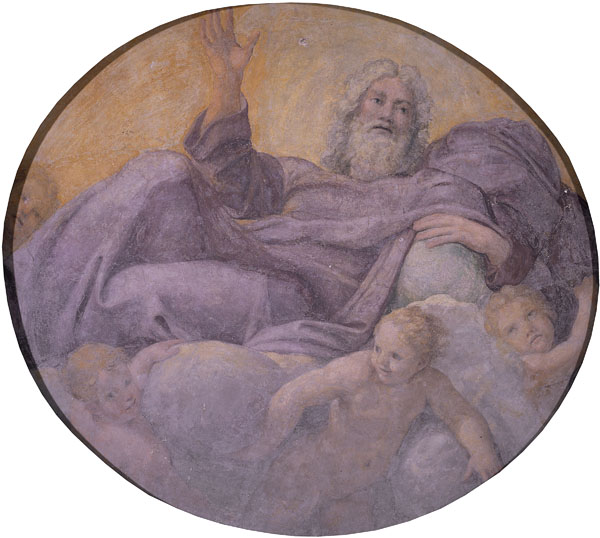The Bible’s Answer
The Prophet Isaiah made the following prophecy concerning Jesus: “For to us a child is born, to us a son is given; and the government shall be upon his shoulder, and his name shall be called Wonderful Counsellor, Mighty God, Everlasting Father, Prince of Peace” (Is 9:6, ESVUK). Some people assume that in calling Jesus the “Everlasting Father”, this means he must be God the Father. This is not true.
First, notice that Isaiah says: “his name shall be called…”. In other words, Isaiah is giving a list of names, or titles, which Jesus possesses. The fact that Jesus shares the same name or title as the Father, however, does not in any way mean that he and the Father are the same person; two different people can share the same name. For example, King Nebuchadnezzar shares the title “king of kings” (Ezek 26:7; Dan 2:37) with God the Father (1Tim 6:15), but no one would conclude that he and God the Father are the same person.
In addition, the counterargument could be made that nowhere in the Bible is the Father called the “Prince of Peace”—Jesus is the only person in the entire Bible who possesses this name/title. This indicates that he is, indeed, a different person from the Father, who shares some names with him, but also possesses different names. For example, Jesus is called “the Word” (Jn 1:1, 14; Rev 19:13), “the Son of God” (Ac 9:20), “the Father’s Son” (2Jn 1:3), “Immanuel” (Mat 1:22–23), and even the name “Jesus” itself (Mat 1:21), unlike the Father. Furthermore, a wholistic reading of the book of Isaiah proves that Jesus and the Father are not the same person. Later on, Isaiah records the following prophecy in which the Messiah (Jesus) says:
The Spirit of the Lord GOD is upon me, because the LORD has anointed me to bring good news to the poor; he has sent me to bind up the broken-hearted, to proclaim liberty to the captives, and the opening of the prison to those who are bound; … (Isaiah 61:1)
In the Gospel of Luke, Jesus confirms that he fulfills this prophecy (Lk 4:17–21). This clearly differentiates “God”, the “Spirit” and the “Anointed One” (Jesus) as three different persons. This is in perfect harmony with Isaiah 9:6, which teaches that Jesus is called “Everlasting Father”, but not God the Father.
Finally, the entire Bible contradicts the belief that Jesus is the Father. In the Gospel of John, Jesus identifies himself and his Father as “two people”, not one person, when he said: “In your Law it is written that the testimony of two people is true. 18 I am the one who bears witness about myself, and the Father who sent me bears witness about me” (Jn 8:17–18). Furthermore, in Jesus’ baptism, the Father, Son, and Holy Spirit were each present simultaneously, rather than in one mode at a time:
… when Jesus also had been baptized and was praying, the heavens were opened, 22 and the Holy Spirit descended on him in bodily form, like a dove; and a voice came from heaven, “You are my beloved Son; with you I am well pleased. (Luke 16:21–22)
The Bible teaches that Jesus is God (Jn 1:1; 20:28), the eternal Creator of all things (Jn 1:2–3; Col 1:16–17). But Jesus is the Son, not the Father (1Jn 4:14; 5:11–12). The Son and the Father “are one” in being (Jn 10:30), not person (Jn 10:28–29). This is how Jesus can be “with God” and “God” at the same time (Jn 1:1). The true monotheistic God is the Father, Son, and Holy Spirit—three Persons united in the one undivided being—the God into whose name Christians are baptised (Mat 28:19), just as Christ’s Church has constantly taught for the past 2,000 years.
See Also






